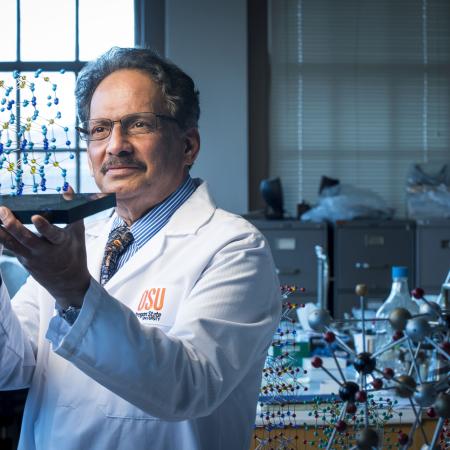In a basement lab on the leafy Oregon State University (OSU) campus in Corvallis, scientists in white coats hunch over equipment that appears to the uninitiated like large microwaves. It may not look like much, but a quiet revolution is underway here in Dr. Claudia Maier’s biomolecular Mass Spectrometry Center. Scientists here are working with the analytical chemistry professor on a brand-new piece of HP technology to demonstrate how it can isolate living cells from specimens so scientists can study which proteins are implicated in aging, dementia, and certain cancers.
The HP D100 Single Cell Dispenser, which launched in early 2023, uses inkjet printer technology to dispense liquid samples containing cells in the 10- to 25-micron range — less than half the width of a human hair. This instrument uses advanced microfluidics devices — systems that can process tiny amounts of fluids — for cutting-edge research. In fact, it can isolate and dispense one cell at a time, enabling chemical analysis at a level of precision not seen before, for less cost, and with better outcomes.
“Until the D100, there were no reasonably cheap, robust devices that could do single-cell dispensing,” explains Stanislau Stanisheuski, one of Dr. Maier’s grad students. “Cheap and fast — those are two very important qualities.” Fast is important in this work because the longer the cells stay in suspension (in a saline solution), the more they degrade. Being competitive price-wise is also valuable because it means more scientists around the world will be able to use these instruments for revolutionary research and development.
Read more here:




